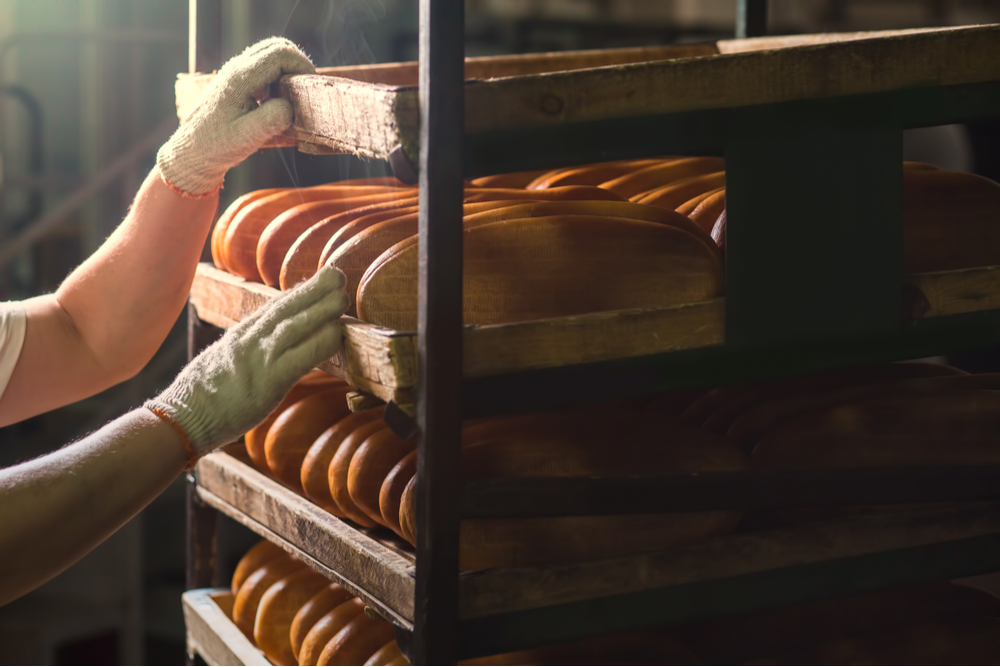50% of food firms considering awarding pay rises to attract and retain key staff.
The majority (85%) of Irish food businesses are feeling confident about the prospects of their own businesses despite the top threats of rising input costs and inflationary pressures.
Research published today by Love Irish Food and PwC and conducted among Irish food businesses, the 2022 SME Food Barometer points to the confidence of Irish food businesses in their ability to grow in the face of multiple challenges.
“Focus and dogged determination will be needed by all sectors of the food industry to allow it to come through this period of challenge and to maintain a viable, independent source of food for the nation”
The survey was carried out in March and early April 2022 by PwC and Love Irish Food, among 68 Irish food SMEs.
The research reveals high levels of concerns with over four out of ten thinking Ireland’s economy will decline in the year ahead. Ireland’s 2022 SME Food Barometer finds that just 24% of Irish food SMEs believe that Ireland’s economy will improve in the year ahead, down from 65% last year. Nearly all participants (97%) confirmed that rising input costs and inflationary pressures are their top threats to business growth.
Innovation offsets challenges
Other top challenges are greater economic volatility (86%) and supply chain issues (66%), and nearly half of participants stated that labour shortages are a key threat for future business growth. Indicating COVID-19 is hopefully behind us, health threats do not feature, being the top concern last year.
“The fact that Irish food SMEs are confident about their own organisations’ growth in the face of economic uncertainty is testament to their resilience and their confidence to weather current challenges”
The survey signals that Irish food SMEs are resilient in the knowledge that they have robust business models and are taking action to control costs. A large majority (85%) are confident about the prospects for their own company’s revenue growth in the year ahead, up from 75% last year.
“The fact that Irish food SMEs are confident about their own organisations’ growth in the face of economic uncertainty is testament to their resilience and their confidence to weather current challenges,” said Owen McFeely, director of PwC Retail & Consumer Practice.
“They have become accustomed to dealing with recent challenges, both Brexit and Covid-19 have tested their crisis management and business resilience capabilities. Irish food SMEs are operating in a very uncertain environment, yet they remain focused on the priorities of growth, innovation and cost control. Continuing to become sustainable businesses will also be a key focus, with over half planning to work towards a net zero commitment.”
The survey findings suggest that planned investment is linked to cost reduction, innovation, and growth to offset the consistent challenges. Sustainability measures are uppermost in business’ minds with 63% confirming that sustainability is embedded in their overall business strategy with the greatest benefits being enhanced reputation and brand trust.
Key sustainability investments reported are in the areas of energy consumption (78%), packaging and plastics reduction (68%) and water usage (50%). In addition, over 70% of respondents have or are working towards a net zero commitment, though less than one fifth (19%) have already made the commitment.
Less than half of Irish food SMEs reported that they are investing in the specific measurement (25%) or reporting (43%) of greenhouse gas emissions, important ingredients for reaching net zero targets.
“Irish food producers now face a tidal wave of challenges that encompass near doubling of energy costs, limited availability of key food and non-food ingredients, wider supply chain issues, and labour retention costs,” said Kieran Rumley, executive director of Love Irish Food.
With inflation now estimated to reach between 7% and 9% in Q3 driven by energy costs, the food industry is set for the biggest challenge that it has faced in many decades.”
Responding further to challenges, the top three general areas for investment in the year ahead are operational efficiencies (48%), production automation (41%) and new products and services (44%).
In addition, over half (52%) of respondents are considering awarding pay rises to attract and retain key staff, while 33% will invest in people and skills despite majority concerns about talent availability.
With increased sales and increased positive customer engagement seen as the top two benefits of building brand trust by eight out of ten respondents, specific actions relating to this are a focus for the majority. Over six out of ten respondents specified increasing social media presence and investment in sustainability and in quality and standards as key brand building actions.
“While the confidence of food businesses in their own strengths provides hope, some companies in the food sector will clearly struggle with the challenging market conditions,” Rumley noted.
“Focus and dogged determination will be needed by all sectors of the food industry to allow it to come through this period of challenge and to maintain a viable, independent source of food for the nation.”
Main image at top: Kieran Rumley, Love Irish Food Executive Director; Owen McFeely, Director, PwC Retail and Consumer Practice and Mary Sadlier, Coole Swan and Director, Love Irish Food



